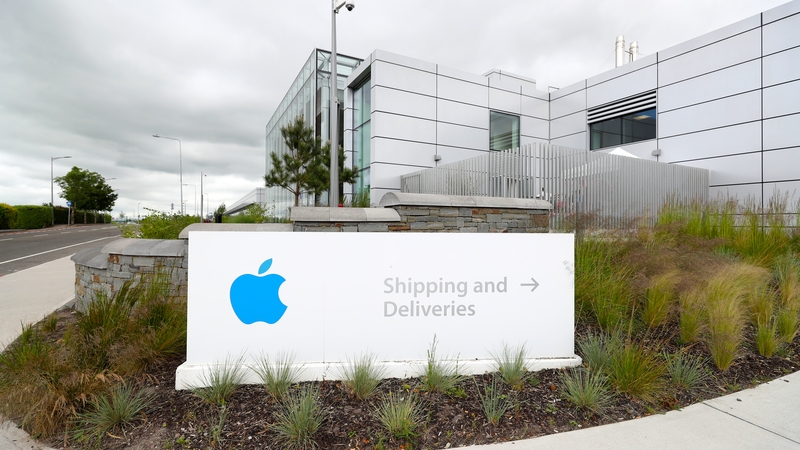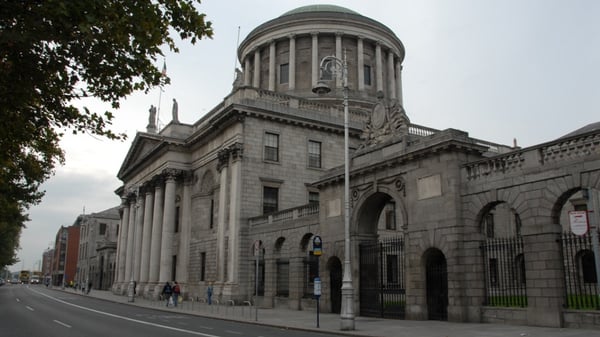Apple and Ireland have won their appeal against the European Commission's €13.1bn tax ruling.
The General Court of the European Union (GCEU) has annulled the decision taken by the Commission regarding the Irish tax rulings in favour of Apple.
According to the GCEU, the commission was wrong to declare that Apple Sales International and Apple Operations Europe had been granted a selective economic advantage and, by extension, State aid.
It says the commission failed to show "to the requisite legal standard" that Apple enjoyed preferential treatment which amounted to illegal State aid.
In a statement, the Department of Finance said it welcomes the judgment by the EU court.
"Ireland has always been clear that there was no special treatment provided to the two Apple companies - ASI and AOE. The correct amount of Irish tax was charged... in line with normal Irish taxation rules," it said.
"Ireland appealed the commission decision on the basis that Ireland granted no State aid and the decision today from the court supports that view."
The European Commission is expected to appeal the judgement to the upper court.
Here is the court's release. pic.twitter.com/HvAVp9Kl8O
— Will Goodbody (@willgoodbody) July 15, 2020
Apple said it was pleased that the court has annulled the commission's case.
"This case was not about how much tax we pay, but where we are required to pay it," it said in a statement.
"We're proud to be the largest taxpayer in the world as we know the important role tax payments play in society.
"Apple has paid more than $100 billion in corporate income taxes around the world in the last decade and tens of billions more in other taxes."
The company added that changes in how a multinational company's income tax payments are split between different countries require a global solution, and Apple encourages this work to continue.
We need your consent to load this rte-player contentWe use rte-player to manage extra content that can set cookies on your device and collect data about your activity. Please review their details and accept them to load the content.Manage Preferences
The Apple tax judgment - all you need to know
Speaking in the Dáil, Taoiseach Micheál Martin said the judgment will be considered by Cabinet this evening and that Ireland is only entitled to revenue within the law.
Mr Martin said Ireland's policy has been to attract foreign direct investment over 40 years and tax certainty has been critical to that success.
Welcoming the judgement the Minister for Finance said Ireland has always been very clear that based on Irish law, the correct amount of Irish tax was charged and Ireland provided no State aid to Apple.
Paschal Donohoe said Ireland does not provide preferential tax treatment to any tax payer, nor was it the policy of any Irish government or Revenue Commissioner.
Mr Donohoe said today's decision is a vindication of Ireland's stance on the matter.
He said it was important for Ireland to challenge the commission's ruling as the Government believed important issues had to be addressed.
He added that the case focused on a period that was of historical relevance only and the Revenue tax rulings that were at question no longer applied.
Mr Donohoe also highlighted a large number of changes put in place by the Government in recent years around tax residency and the tax system.
He said much of the criticism levelled at Ireland in relation to Apple has been given a very comprehensive answer today.
However, he warned the agenda in relation to digital tax is as strong as ever and change is coming.
The minister said it was not clear to him whether today's judgement will strengthen or weaken that agenda.
But he added that he continues to be of a very strong view that the best way to reach agreement on the issue is through the OECD and Ireland wants to be a constructive contributor to that.
Minister for Finance Paschal Donohoe says Ireland has always been clear that based on Irish law, the correct amount of tax was charged, adding that Ireland does not provide preferential tax treatment | More: https://t.co/lyqmq9YIEO pic.twitter.com/gP13YcJOQQ
— RTÉ News (@rtenews) July 15, 2020
Meanwhile, EU competition chief Margrethe Vestager has vowed to continue her fight against tax measures used by multinationals despite today's Apple decision.
She said she would study the General Court's ruling before deciding on the next step.
"The European Commission will continue to look at aggressive tax planning measures under EU state aid rules to assess whether they result in illegal state aid," she said in a statement.
"At the same time, state aid enforcement needs to go hand in hand with a change in corporate philosophies and the right legislation to address loopholes and ensure transparency," the Commissioner added.
The case arises from the European Commission's 2016 direction to Ireland to recover €13.1bn in unpaid taxes from Apple covering an 11-year period between 2003 and 2014, as well as €1.2bn in interest.
The €14.3bn in alleged unpaid taxes and interest has been sitting in an escrow account since 2018.
The Commission concluded that two tax rulings in 1991 and 2007 issued by Revenue to Apple had "substantially and artificially lowered" the tax paid the firm in Ireland since 1991 and had therefore amounted to illegal state aid.
We need your consent to load this rte-player contentWe use rte-player to manage extra content that can set cookies on your device and collect data about your activity. Please review their details and accept them to load the content.Manage Preferences
The Commission's claim was that the rulings rubber-stamped a method of determining the taxable profits for two companies based in Ireland - Apple Sales International and Apple Operations Europe - which were managed from outside Ireland and were responsible for all Apple's sales outside of the Americas.
The Commission found that the Revenue determinations did not correspond to economic reality, because almost all the profits recorded by the two companies were attributed internally by Apple to a "head office".
However, the Commission concluded that the head offices only actually existed on paper and as a result could not have generated such profits.
These profits were not, as a result, subject to tax in any country under specific provisions of the Irish tax law which are no longer in force, it found.
As a result, it said, Apple only paid an effective corporate tax rate that declined from 1% in 2003 to 0.005% in 2014 on the profits of Apple Sales International.
The Commission argued that the intellectual property value of the products being sold through the Irish companies should have been attributed to those firms and, as a result, so should the profits on them.
Both Apple and Ireland have strongly denied the Commission's claims and appealed the ruling to the European courts, with the hearing taking place over two days last September.
Apple had argued that most of the value attributable to its products is generated in the US and that was where the tax was to be paid.
It has also claimed that it pays all the taxes it owes everywhere it has operations.
The company has accused the European Commission of trying to rewrite Apple's history in Europe, ignore Irish tax laws and upend the international tax system.
It has also alleged that the EU's claim has no basis in fact or in law as Apple had never asked for, nor was it given, any special deals.
The Government had also opposed the Commission's decision, arguing it was fundamentally flawed and interfered with its sovereignty by seeking to override national law.
Additional reporting Tony Connelly






